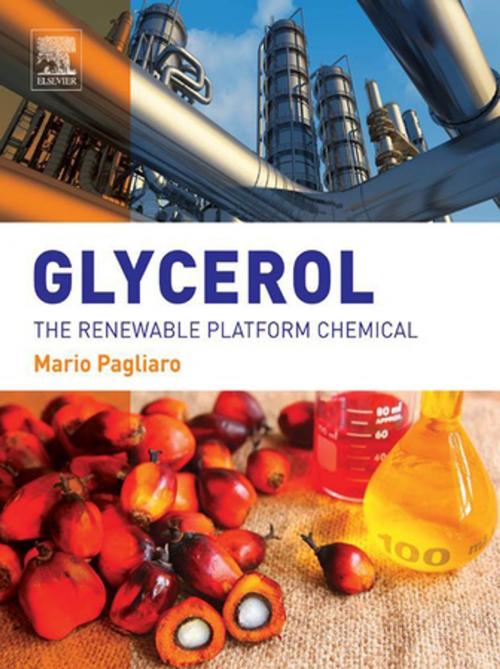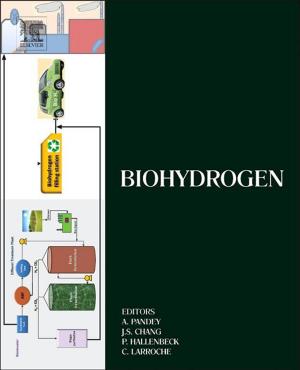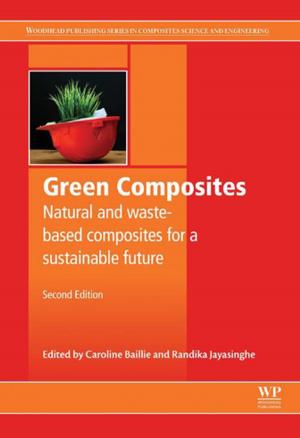Glycerol
The Renewable Platform Chemical
Nonfiction, Science & Nature, Science, Biological Sciences, Biotechnology, Technology, Manufacturing| Author: | Mario Pagliaro | ISBN: | 9780128123331 |
| Publisher: | Elsevier Science | Publication: | February 28, 2017 |
| Imprint: | Elsevier | Language: | English |
| Author: | Mario Pagliaro |
| ISBN: | 9780128123331 |
| Publisher: | Elsevier Science |
| Publication: | February 28, 2017 |
| Imprint: | Elsevier |
| Language: | English |
Glycerol: The Renewable Platform Chemical provides a valuable overview of the glycerol market, including industrial applications and sustainable production of glycerol. Replacing previous works on the subject, this useful resource describes glycerol, also known as glycerine, and its chemical derivatives, especially the new bioglycerol-derived products. The monograph also discusses how the industrial use of glycerol as raw material for producing commodity chemicals depends on broader scope and lower cost of the catalytic process used to convert glycerol of varying purity grades into valued monomers.
New chapters on glycerol polymers, the use of glycerol as antifreeze, and its sustainable production offer relevant information for researchers and professionals from academics and industry alike. The book features new processes, such as low cost and biocompatible glycerol polymers as a major alternative to the conventional polymers, with the first practical applications now emerging in the biomedical and patient care markets.
The book offers both a source of inspiration for new projects and a reliable source of information on how glycerol is replacing petrochemicals in many real world applications.
- Features completely unique information and insight from leading expert Mario Pagliaro, including recent developments in the field, gathered from over a decade of intense R&D activities
- Includes new chapters on the glycerol market, glycerol polymers, the use of glycerol in the cement and construction industries, its use an antifreeze, and its sustainable production
- Contains reliable, accessible information appropriate for research chemists and chemical engineers in the chemical, oleochemicals, biodiesel, biotechnology and cement industries as well as in academia
Glycerol: The Renewable Platform Chemical provides a valuable overview of the glycerol market, including industrial applications and sustainable production of glycerol. Replacing previous works on the subject, this useful resource describes glycerol, also known as glycerine, and its chemical derivatives, especially the new bioglycerol-derived products. The monograph also discusses how the industrial use of glycerol as raw material for producing commodity chemicals depends on broader scope and lower cost of the catalytic process used to convert glycerol of varying purity grades into valued monomers.
New chapters on glycerol polymers, the use of glycerol as antifreeze, and its sustainable production offer relevant information for researchers and professionals from academics and industry alike. The book features new processes, such as low cost and biocompatible glycerol polymers as a major alternative to the conventional polymers, with the first practical applications now emerging in the biomedical and patient care markets.
The book offers both a source of inspiration for new projects and a reliable source of information on how glycerol is replacing petrochemicals in many real world applications.
- Features completely unique information and insight from leading expert Mario Pagliaro, including recent developments in the field, gathered from over a decade of intense R&D activities
- Includes new chapters on the glycerol market, glycerol polymers, the use of glycerol in the cement and construction industries, its use an antifreeze, and its sustainable production
- Contains reliable, accessible information appropriate for research chemists and chemical engineers in the chemical, oleochemicals, biodiesel, biotechnology and cement industries as well as in academia















